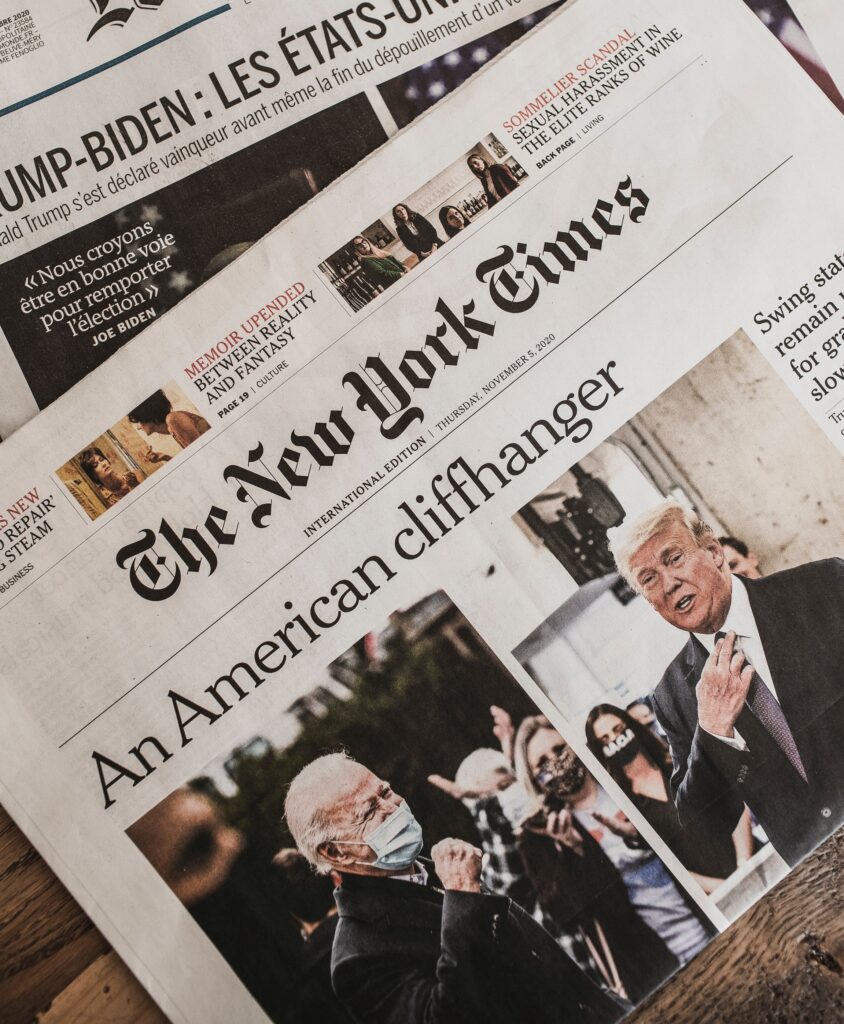As anticipated, election “day” this year was not a day at all– it was five. After waiting for what felt like an eternity to many Americans, most major media outlets finally declared the projected winner of the 2020 election on Saturday: Joe Biden.

Of course, Donald Trump has not accepted the results of the election just yet, alleging that voter fraud is to blame for his loss. After losing Georgia, Wisconsin, and Nevada, he tweeted today that “Georgia will be a big Presidential win,” along with “Wisconsin is looking very good. Needs a little time statutorily. Will happen soon,” and “Nevada is turning out to be a cesspool of Fake votes.” Additionally, Trump continues to maintain that Pennslyvania has illegally prevented poll observers from watching over counting processes. This week, Trump’s legal team is bringing cases to courts in the battleground states of Pennslyvania, Nevada, Michigan, and Georgia. Few expect that such cases will result in any change to election results.
While Biden’s win comes as no surprise to pollsters and polling organizations, his margin of victory was much smaller than expected. Biden had been favored to win the overwhelming majority of battleground states including but not limited to Florida, Wisconsin, Michigan, North Carolina, and Arizona. He was even deemed to be a strong competitor in farther red-leaning states like Ohio, Iowa, and Texas. In light of such polling data, the ultimate showing for Biden was quite lacking. Very soon into election night, Biden was already projected to lose Texas, Florida, Iowa, and North Carolina. Even in states like Wisconsin, where Biden had been clearly favored to win, his margin of victory came down to about 20,000 votes. What should have been a resounding victory, according to polls, came down to relatively tiny margins of victory that represented less than a percentage point of voters in Wisconsin, Pennslyvania, Georgia, and Arizona (which has not yet been decided).
The incredibly close election results in many battleground states are indicative of a larger trend of increasing polarization among American voters that we have learned about throughout class. After such a close and polarizing election, voters are faced with the same realization that was arrived upon in 2016: that Trump’s morally questionable (and frankly, racist, sexist, and ableist) rhetoric and campaign do, in fact, resonate with a very large number of American voters. Preliminary exit poll data suggests that his supporters tend to be white, Christian, older, and male (although the majority of white women also voted for Trump). Biden’s victory, therefore, is almost entirely thanks to people of color– most notably thanks to Black women, a group in which 90-92% of voters supported Biden in the 2020 election. In light of such facts, Kamala Harris’s election as the first female, Black, South Indian Vice President is not only groundbreaking but truly fitting.
In the midst of election chaos, my class spent the day after November 3rd performing a much-needed election debrief. Among other things, we discussed our general feelings and emotions, the overall efficacy of polling data, potential court cases, and predictions for the outcome of the election.
We are spending the final days of class learning about the power of campaigns themselves, focusing on campaigning tactics, media and advertisements, and money in politics. So far I have been most surprised to learn that modern studies suggest a relative ineffectiveness among persuasion tactics commonly used during general election campaigns–finding campaigns that focus on voter turnout to be much more effective.
Our final exam question on Wednesday will ask us to synthesize and apply all of the material we have learned toward explaining what exactly happened in the 2020 election and why. With the whirlwind of an election finally over, I am grateful for the opportunity this class provides to reflect on what happened during “election week” and consider the results among classmates.